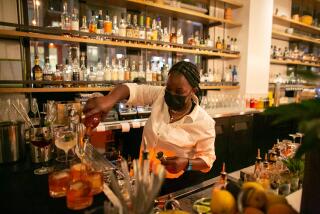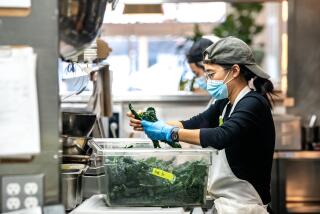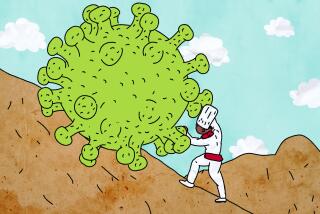Are L.A. restaurants and diners ready for masked servers and temperature checks?
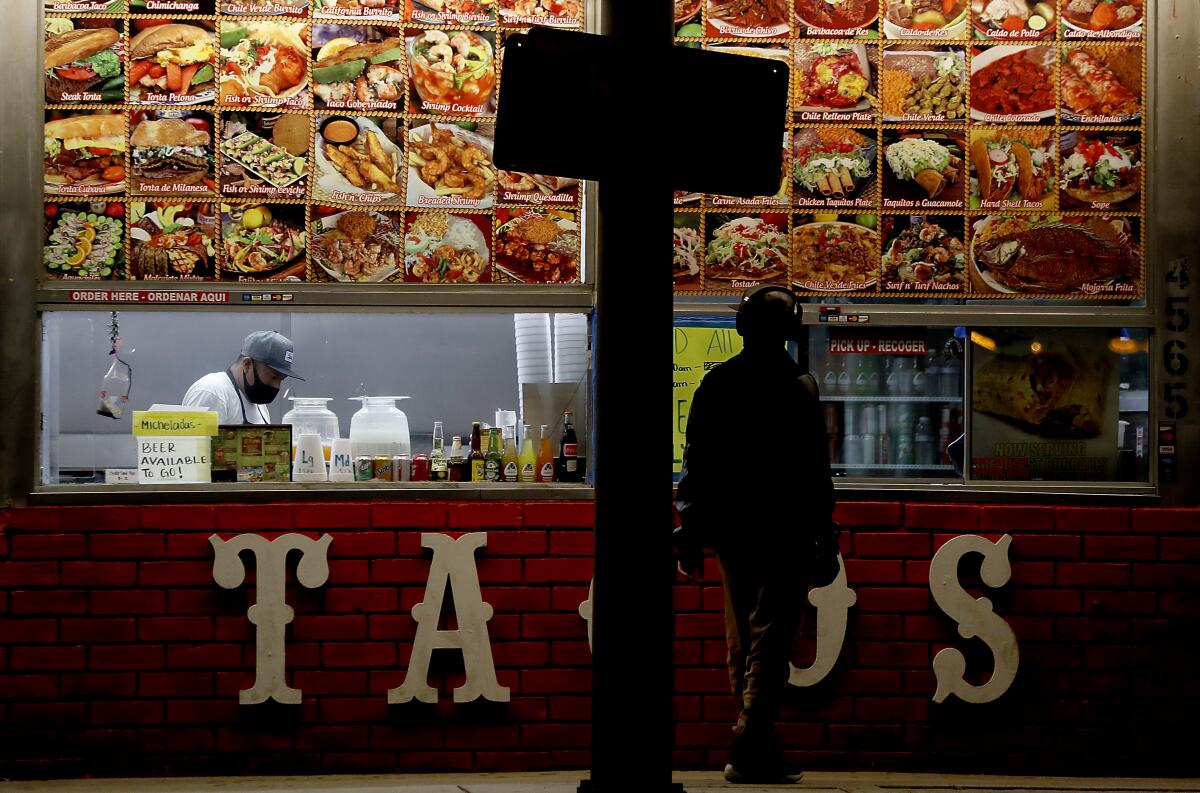
Los Angeles dining rooms are closed for now, but what will they look like when they finally reopen?
On Tuesday, Gov. Gavin Newsom hinted at the changes that restaurants and diners will confront when social distancing measures are eventually loosened.
“You may be having dinner with a waiter wearing gloves, maybe a face mask, dinner where the menu is disposable, where ... half the tables in that restaurant no longer appear, where your temperature is checked before you walk into the establishment,” Newsom said during a press briefing. “These are likely scenarios.”
The measures may sound radical, but they are already a reality in countries where dining rooms have reopened.
In cities in China where the spread of the novel coronavirus has been stanched, restaurants are cautiously reopening. Operators there are required to issue new masks to employees every four hours, keep safe distances between tables and take the temperature of diners, according to reports.
Are L.A. restaurants and diners ready for masked servers and temperature checks at the host stand?
We have no other choice, says Michael Cimarusti of Providence.
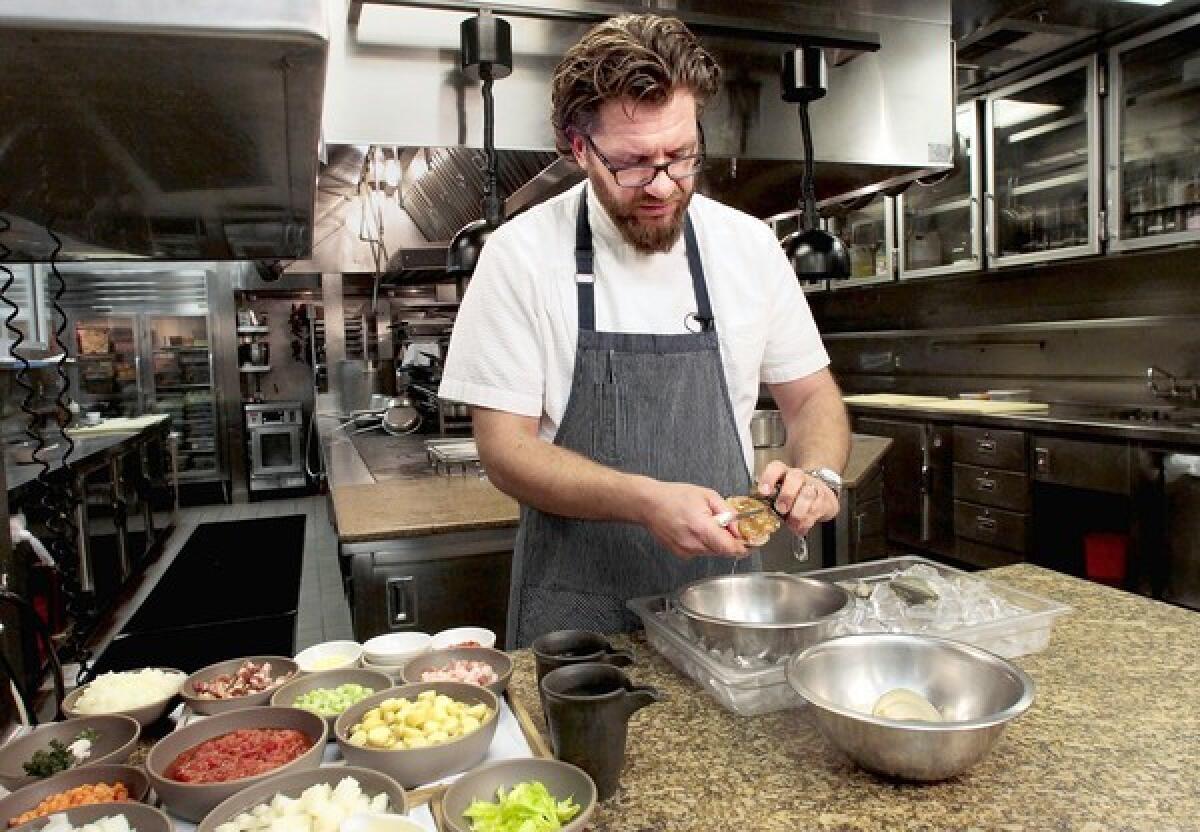
“We want nothing more than getting back to what we do and taking care of our guests,” he added.
“If it means our servers have to wear masks, or if it means we have to limit the number of guests we have in our dining room at any given time, of course we’re willing to do that,” said Cimarusti, who is also a partner at Connie and Ted’s in West Hollywood, Best Girl at the Ace Hotel downtown and Il Pesce Cucina at Eataly.
Cimarusti plans on meeting with his team at Connie and Ted’s this week to discuss different ways to reconfigure the dining room.
“What portion of the dining room do we seat? Do you seat every other table? Do you seat every third bar stool? Those are all considerations we have to work through before we’re able to reopen,” he said.
Half of the seating has already been removed at the temporarily shuttered Providence, Cimarusti’s fine dining restaurant on Melrose Avenue.
“The last week we were open we were getting lots of calls with people asking: ‘How much space is in between your tables?’ ‘How crowded is the restaurant?’ ”
“We put as much space in between the tables as we possibly can. It gave a lot of people comfort,” said Cimarusti.
Jennifer Feltham of downtown L.A.’s Sonoratown is similarly pragmatic.
“We’ll do whatever we have to do. Obviously, these scenarios [Newsom] is outlining aren’t ideal, but what else can we do?” she said.
“Dining out, good hospitality, being able to celebrate important milestones with friends and family — I cherish those things. But safety is more important. It seems like this virus is going to change the way people eat for some time.”
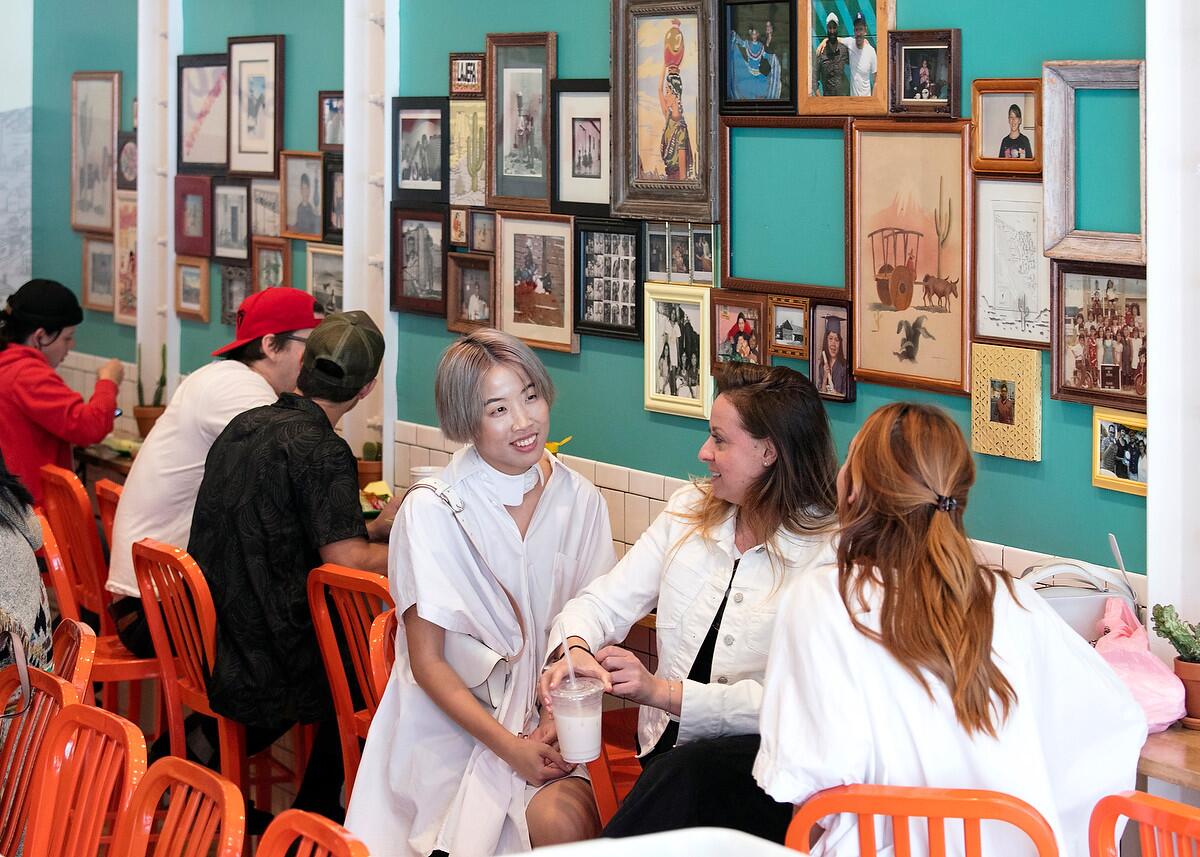
This is not uncharted territory for restaurants that have already been practicing social distancing, said Hunter Pritchett, chef and part owner of Atrium in Los Feliz.
“Before our temporary closure, we were practicing most of these measures,” he said.
“I imagine upon reopening, we will take your temperature at the front door with an infrared thermometer, [you’ll] be handed a single-use menu by the host with gloves and a clear face mask on, then be escorted down our already spacious patio, with every other table now removed.”
Reopening restaurants will prove “extremely challenging” as long as we don’t have a vaccine or proven viral treatments for the novel coronavirus, said David Combes of Botanical Hospitality, the group behind West Hollywood’s E.P. & L.P. and the forthcoming all-day cafe Strings of Life (S.O.L.).
“The damage done to the customer psyche will take months and possibly years to get back to normal in the absence of definitive treatments,” Combes wrote in an email.
Many restaurants won’t survive under the guidelines Newsom outlined, Combes said.
Occupancy limits in particular will kneecap smaller restaurants.
“Sadly, I don’t think it will be survival of the fittest in this instance but more likely the fattest bank accounts,” he said.
It’s unclear which government agencies will oversee any new regulations when they do roll out, but Newsom said counties would have a “profound and outsize influence” on carrying out new measures.
Many chefs I talked with expressed hope that restaurants will be included in the process of developing new guidelines.
“I think we should have a seat at the table when these guidelines are put in place so we can help establish best practices that are practical in our industry,” Cimarusti said.
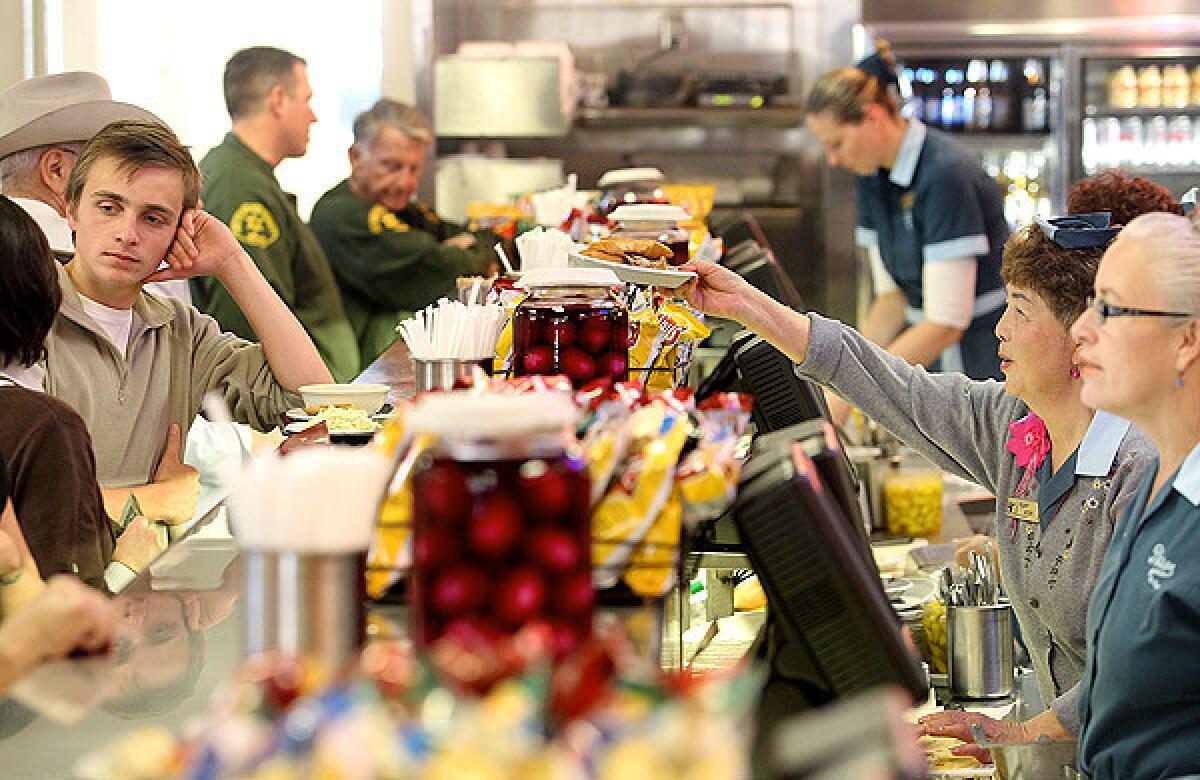
What about diners? Will they be turned off by the near-surgical attention to hygiene and safety in dining rooms?
Susana Rangel, a nurse practitioner in Glendale who frequently eats out, takes no issue with face masks or temperature checks.
In fact, she’ll be looking for these things when restaurants reopen.
“I would probably not go to a restaurant that did not have these safety measures in place,” she said.
Rangel orders takeout frequently and pays attention to whether restaurants provide workers with things like disposable gloves.
“It makes me go back to restaurants with confidence.”
Marcos Alfaro, also in Glendale, is a senior project manager who until recently was dining out regularly. He wonders how new safety measures will shake out in restaurants with communal tables and shared plates.
“I’m having a hard time picturing Philippe’s, the roast beef place downtown. Everyone sits together there. Or those Basque restaurants in Bakersfield with family-style dining,” he said.
“How are those restaurants going to look a few months from now?”
“This is the death of tapas as we know it,” he said.
More to Read
Eat your way across L.A.
Get our weekly Tasting Notes newsletter for reviews, news and more.
You may occasionally receive promotional content from the Los Angeles Times.
